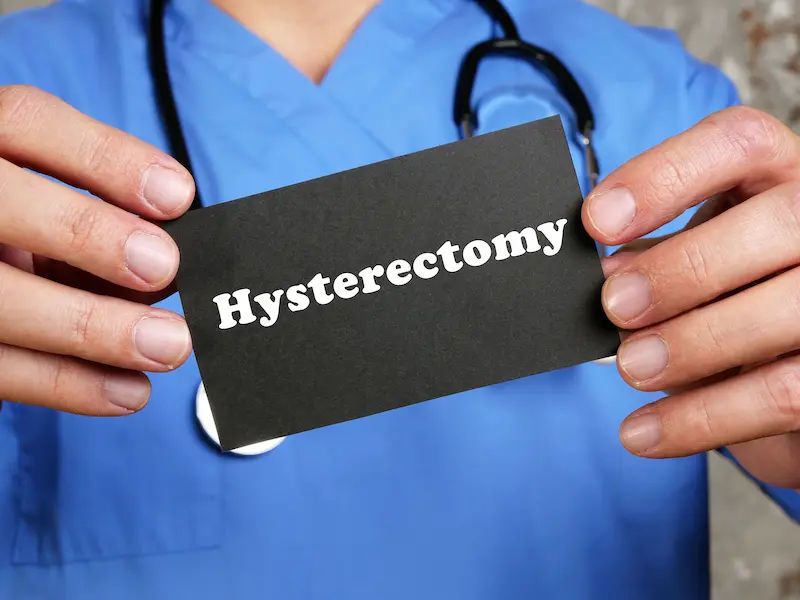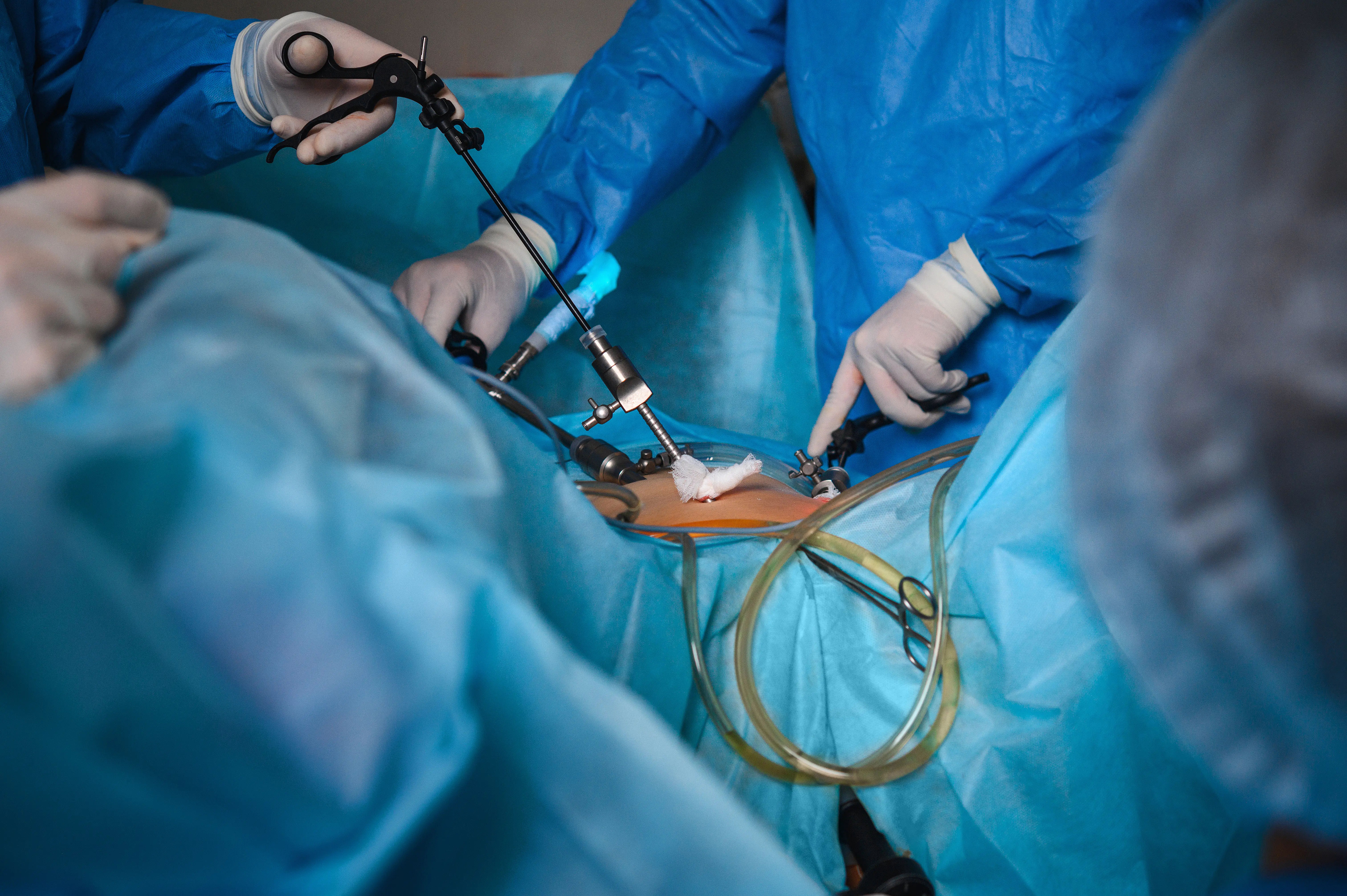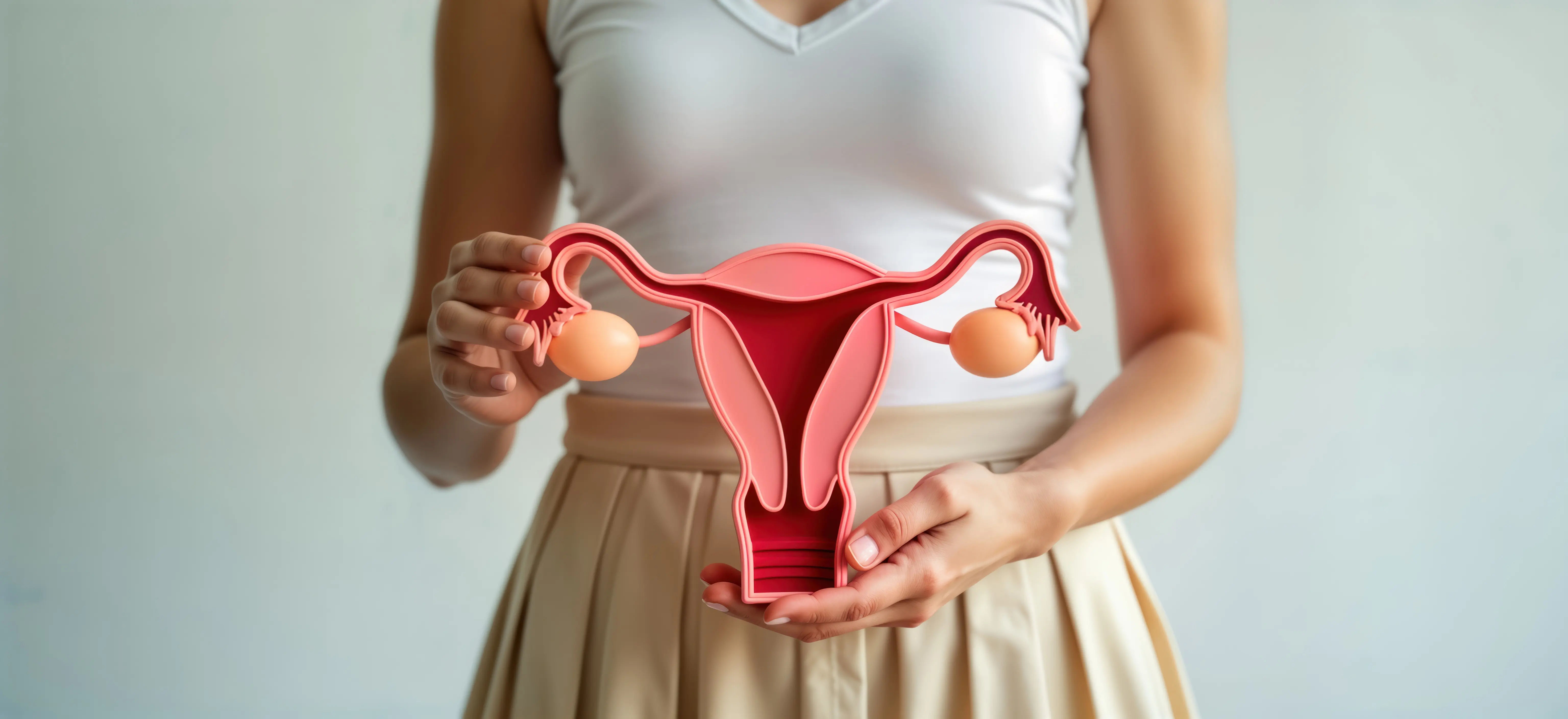Is Laparoscopic Hysterectomy Safe?
Find out if laparoscopic hysterectomy is safe, including its benefits, risks, and recovery. Learn how this minimally invasive surgery supports faster healing and improved outcomes.

Written by Dr. Rohinipriyanka Pondugula
Reviewed by Dr. Md Yusuf Shareef MBBS
Last updated on 13th Jan, 2026

Introduction
If you or a loved one has been advised to undergo a laparoscopic hysterectomy, you may have questions and concerns about its safety. This article aims to provide clear, compassionate, and helpful information about this procedure so you can make an informed decision.
What is a Laparoscopic Hysterectomy?
A hysterectomy is a surgical procedure to remove the uterus (womb). A laparoscopic hysterectomy is a minimally invasive approach where small incisions (cuts) are made in the abdomen, and a thin, lighted tube with a camera (laparoscope) is used to guide the surgery.
Compared to traditional open surgery, laparoscopic hysterectomy offers several benefits, including:
Smaller scars
Less pain after surgery
Shorter hospital stay
Faster recovery
Is Laparoscopic Hysterectomy Safe?
Yes, laparoscopic hysterectomy is generally considered safe when performed by an experienced surgeon. However, like any surgery, it carries some risks. The good news is that complications are rare, and most women recover well.
Potential Risks and Complications
While laparoscopic hysterectomy is low-risk, possible complications include:
Infection: Rare but possible at the incision sites.
Bleeding: Minimal blood loss is expected, but excessive bleeding may occur in rare cases.
Damage to nearby organs: Such as the bladder, bowel, or blood vessels (very rare).
Blood clots: Prolonged immobility can increase the risk of clots in the legs (deep vein thrombosis).
Anesthesia-related risks: Some patients may have reactions to anaesthesia.
Most complications are minor and can be managed effectively. Your surgeon will discuss these risks with you before the procedure.
Consult Top Specialists for Personalised Tips
Who is a Good Candidate for Laparoscopic Hysterectomy?
This procedure may be recommended for conditions such as:
Fibroids (non-cancerous growths in the uterus)
Endometriosis (painful condition where uterine tissue grows outside the uterus)
Heavy or irregular menstrual bleeding
Uterine prolapse (when the uterus slips into the vaginal canal)
Certain cancers (like early-stage uterine or cervical cancer)
However, not everyone is a candidate. Women with:
Very large fibroids
Severe scarring from previous surgeries
Advanced cancer
They may require an open hysterectomy instead.
Recovery After Laparoscopic Hysterectomy
One of the biggest advantages of this procedure is the faster recovery compared to open surgery.
A. What to Expect After Surgery
Things to expect after surgery are:
1. Hospital Stay: Usually 1-2 days (compared to 3-5 days for open surgery).
2. Pain Management: Mild to moderate discomfort, managed with prescribed painkillers.
3. Activity Restrictions:
Avoid heavy lifting (more than 5 kg) for 4-6 weeks.
No strenuous exercise or sexual activity for 6 weeks.
Walking is encouraged to prevent blood clots.
Return to Work: Most women resume light work in 2-3 weeks.
B. Tips for a Smooth Recovery
Some of the tips for a smooth recovery are:
Follow your doctor’s instructions on wound care and medications.
Eat a balanced diet (high in fibre to prevent constipation).
Stay hydrated and avoid straining during bowel movements.
Rest but stay mobile. Gentle walks help circulation and healing.
Watch for warning signs like fever, heavy bleeding, or severe pain. Contact your doctor if these occur.
Lifestyle Changes After Hysterectomy
Since the uterus is removed, you will no longer have periods or be able to conceive. However:
Hormonal changes (if ovaries are removed) may lead to menopause symptoms (hot flashes, mood swings).
Bone health may be affected. Ask your doctor about calcium and vitamin D supplements.
Pelvic floor exercises (Kegels) can help strengthen muscles and prevent incontinence.
When to Consult a Doctor?
If you experience:
Severe pain not relieved by medication
Heavy vaginal bleeding
Signs of infection (fever, foul-smelling discharge)
Difficulty urinating or bowel issues
Seek immediate medical help.
Final Thoughts: Is Laparoscopic Hysterectomy Right for You?
Laparoscopic hysterectomy is a safe and effective option for many women, offering a quicker recovery and fewer complications than traditional surgery. However, the best approach depends on your specific condition and overall health. If you're considering this procedure, consult a trusted gynaecologist to discuss your options.
Consult Top Obstetrics and Gynaecology Surgeon
Consult Top Specialists for Personalised Tips

Dr. Asawari Kesari Kapoor
Obstetrician and Gynaecologist
23 Years • M.B.B.S, D.G.O(Mumbai) ,D.G.O (C.P.S), D.N.B (OBGY)
Delhi
Apollo Hospitals Indraprastha, Delhi
(25+ Patients)

Dr. Mona Yadav
Obstetrician and Gynaecologist
19 Years • MBBS, MD (Obstetrics & Gynaecology)
Dombivli
Nulife multispeciality, Dombivli

Dr. Saheli Kapat
Obstetrician and Gynaecologist
11 Years • MBBS, DNB Obstetrics & Gynaecology,FMAS(Fellowship in Minimal access surgery)
Kolkata
MCR SUPER SPECIALITY POLY CLINIC & PATHOLOGY, Kolkata

Dr Homeira Nishat
Obstetrician and Gynaecologist
34 Years • MBBS, Diploma in Obstetrics & Gynaecology
Bengaluru
Cure Hospital and Clinic, Bengaluru

Dr. Somdutta Basu
Obstetrician and Gynaecologist
7 Years • MBBS, MS Obstetrics & Gynaecology
Bansdroni
Siddhita Healthcare., Bansdroni
Consult Top Obstetrics and Gynaecology Surgeon

Dr. Asawari Kesari Kapoor
Obstetrician and Gynaecologist
23 Years • M.B.B.S, D.G.O(Mumbai) ,D.G.O (C.P.S), D.N.B (OBGY)
Delhi
Apollo Hospitals Indraprastha, Delhi
(25+ Patients)

Dr. Mona Yadav
Obstetrician and Gynaecologist
19 Years • MBBS, MD (Obstetrics & Gynaecology)
Dombivli
Nulife multispeciality, Dombivli

Dr. Saheli Kapat
Obstetrician and Gynaecologist
11 Years • MBBS, DNB Obstetrics & Gynaecology,FMAS(Fellowship in Minimal access surgery)
Kolkata
MCR SUPER SPECIALITY POLY CLINIC & PATHOLOGY, Kolkata

Dr Homeira Nishat
Obstetrician and Gynaecologist
34 Years • MBBS, Diploma in Obstetrics & Gynaecology
Bengaluru
Cure Hospital and Clinic, Bengaluru

Dr. Somdutta Basu
Obstetrician and Gynaecologist
7 Years • MBBS, MS Obstetrics & Gynaecology
Bansdroni
Siddhita Healthcare., Bansdroni




